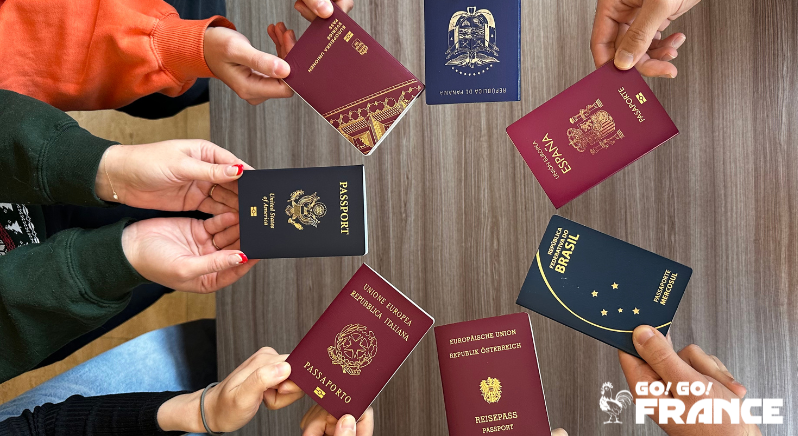Before diving in, we recommend reviewing our guide on the documents required for a student visa: https://gogofrance.com/en/blog/student-visa-supporting-documents/
In this article, we’ll focus specifically on the acceptance letter: Who can issue it? What information must it include?
Why is an acceptance letter required?
The acceptance letter is probably the most important document for your student visa application.
It proves that you have been officially admitted to a recognized school in France. Without this letter, you are not eligible for a student visa.
To apply for a French student visa:
- You must be over 18 years of age
- You must have already chosen your course or program
- You must already be accepted by a language school or higher education institution in France

Who can issue an acceptance letter?
Your acceptance letter is typically issued by your future school in France. However, getting a letter from a school located in France is not enough to guarantee eligibility for a student visa.
Your eligibility depends on multiple criteria, including: the structure of the program, the volume of course hours, the recognition of the institution, and how the program and resulting diploma or certificate fit within your higher education or professional training pathway.
That said, not all schools are able to issue you an acceptance letter that meets visa requirements. You must be careful when choosing your school and program.
At Go! Go! France, we partner with 10+ accredited schools across 9 cities in France. Each school is carefully selected by our team and all offer visa-compatible programs.
See our schools:
https://gogofrance.com/en/language-schools-in-france/
https://gogofrance.com/en/universities-in-france/
What should the acceptance letter include?
To be valid, your acceptance letter must meet specific criteria. Your letter should be:
- Printed on official letterhead of your school
- Dated and signed by an authorized representative of your school, such as the director of the school
- Written in French or English
It must also clearly include the following information:
- Your full name, exactly as it appears on your passport
- The full name and address of the school
- The exact name of your course or program
- The start and end dates of the course
- The intensity of your course (full-time, part-time, number of hours per week, etc.)
- A confirmation that you have been officially admitted
Common mistakes and best practices
Most of the criteria listed above are straightforward, but some details are often overlooked. These mistakes can lead to delays or even visa rejections.
The acceptance letter does not state your full name
Your name must match exactly as it appears in your passport. This is one of the most common reasons acceptance letters are rejected. It can usually be corrected quickly by your school, but resubmitting an updated letter may delay your visa application, so it’s best to check carefully before submitting.
The letter does not confirm your official admission
The letter must clearly state that you have been officially admitted. When possible, it’s helpful to include confirmation of tuition fees and payment status. This helps embassies verify that your school enrollment is final and not pending payment or additional documentation.

Get your acceptance letter with Go! Go! France
At Go! Go! France, we partner with trusted schools that have been welcoming and supporting international students for decades.
We personally visit and evaluate each partner school to ensure it meets our high standards. We observe classes, meet staff and teachers, and only work with language schools that hold the FLE accreditation. All of our partner schools are approved by the French Ministry of Education and offer visa-compatible programs.
Contact us today to learn more about our schools and programs.





